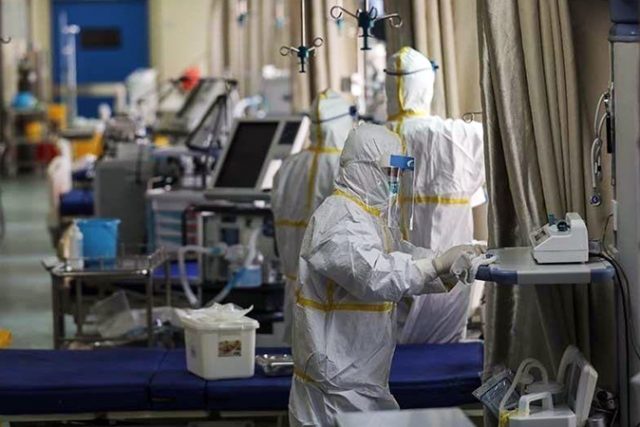DoH reports 10,000 more virus infections and 150 more deaths

By Vann Marlo M. Villegas and Kyle Aristophere T. Atienza, Reporters
THE DEPARTMENT of Health (DoH) reported 10,098 coronavirus infections on Sunday, bringing the total to 936,133.
The death toll rose by 150 to 15,960, while recoveries increased by 72,607 to 779,084, it said in a bulletin.
There were 141,089 active cases, 96.7% of which were mild, 1.7% did not show symptoms, 0.5% were critical, 0.7% were severe and 0.43% were moderate.
The Health department on April 2 reported the highest daily tally at 15,310 cases since the pandemic started last year.
The agency said 17 duplicates had been removed from the tally and 48 recovered cases were reclassified as deaths. Seven laboratories failed to submit data on April 17.
About 10.4 million Filipinos have been tested for the coronavirus as of April 16, according to DoH’s tracker website.
The coronavirus has sickened about 141.3 million and killed three million people worldwide, according to the Worldometers website, citing various sources including data from the World Health Organization.
About 120 million people have recovered, it said.
Meanwhile, DoH reported 617 cases infected with the more contagious variants first detected in South Africa and the United Kingdom.
In a statement, the agency said 351 more people had gotten the variant first detected in South Africa, bringing the total to 695.
A total of 266 more people got infected with the variant first found in the United Kingdom, raising the total to 658.
It also said 25 people had been infected with the variant first detected in the Philippines, bringing the total to 148.
DoH, the University of the Philippines-Philippine Genome Center and UP National Institutes of Health reiterated that the variant from the Philippines was still not a variant of concern, “since current data is insufficient to determine whether the variant will have significant public health implications.”
Meanwhile, the state health insurer’s new payment method that facilitates the settlement of only about 60% of accounts payable to healthcare facilities could force hospitals to cut their resources and manpower amid a fresh spike in coronavirus cases, according to a group of private hospitals.
The presidential palace on April 15 said the Philippine Health Insurance Corp. (PhilHealth) had created a debit-credit payment method in line with President Rodrigo R. Duterte’s order to fast-track the payment of hospital claims in relation to the health crisis.
In a circular released on April 8, the state health insurer said it “shall pay 60% of the total amount of applicable healthcare facility receivables subject to 2% expanded withholding tax.”
“The debit-credit payment scheme for 60% of good claims in the National Capital Region is only an inadequate response to boost the participation of more hospitals,” Jaime A. Almora, president of the Philippine Hospitals Association, said in an email.
“The possible denial of 40% of the claims only strengthen the mistrust of hospitals in Philhealth,” he added.
“It can create apathy and discouragement of hospital managers in expanding their capability. It can cause closure of hospitals that will further aggravate the present crisis.”
The DoH earlier said hospitals in Metro Manila and nearby provinces had failed to increase their beds for coronavirus patients due to late payments from the state insurer.
With the new order, the agency said it was able to secure more than 1,000 private and public hospital beds for coronavirus patients. About 142 ward beds that could be used for patients with severe cases were also secured.
“We would like to expect the government to pay the private hospitals for services rendered to COVID patients so that hospitals can expand their capability and help more patients,” Mr. Almora said. “It should instruct PhilHealth evaluators to stop arbitrary reasons in denying claims.
“The hospitals are also sick and anemic. They need their life blood back.”



